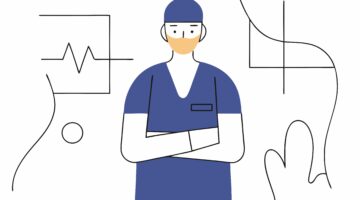Everyone — almost everyone — had something to say about yesterday’s Supreme Court ruling that upheld most of the Affordable Care Act. We talked to people from all around the industry and here is what they had to say.
For more reactions, check out these posts:
“This was a crucial decision upholding the federal government’s power to act in the area of healthcare, but that the battles are far from over. There is still enormous work to do regarding implementation of the law and likely additional legal cases. Some states have not moved forward at all in planning (choosing to wait for the Supreme Court decision), while others have passed legislation (or even constitutional amendments) hindering implementation of the individual mandate.” — Jessica Berg, professor of law, bioethics and public health; associate director of The Law-Medicine Center at Case Western Reserve University
“The good news is the life sciences industry can now chart with some certainty what will happen in the next few years. A repeal may have provided a temporary reprieve from the fee and rebate obligations, but pharma had no assurance that a replacement would have been any less costly, and new legislation could be far worse than what we have now under the ACA. The ruling will also help biosimilars because we did not have specific coverage provisions for lower-priced biologics, and that’s been included in the law.” — Elizabeth Carter, a partner in the Life Sciences and Health Industry Group at Reed Smith
“Today’s Supreme Court decision upholding the constitutionality of the Affordable Care Act is good news for Catholics, who care for the common good as a religious value. As a Catholic, I look to the Obama administration, as it considers the parameters of the religious exemption, to address the reasonable concerns of Catholic institutions in a way that will seal this important victory for broadened access to healthcare for all Americans.” — Nancy Dallavalle, Ph.D., associate professor and chair, Department of Religious Studies, Fairfield University
“There is probably a sizable number of young healthy people among the newly insured that won’t increase demand on the system too much. At the same time, medical schools are starting to graduate more doctors and doctors are starting to practice as part of larger teams. These trends will help build capacity but we will need more primary care doctors in the future.” –Dr. Dave Grande, an assistant professor at University of Pennsylvania Perelman School of Medicine
“I am sure actuaries are going crazy to determine how many unhealthy people who are not currently insured there are and how that will affect the cost of adding them to the healthcare system. How will regulations control how premiums are set from top to bottom? What costs will healthcare providers incur on the administrative end to cover the cost of implementing electronic medical records?” — Steven Weisman, of McCarter & English
“Although I like the part where patients with preexisting disease conditions will begin to get coverage, the rest of law will create an increase in demand, decrease in quality of our marvelous healthcare system, and some increase in the unemployment as small businesses will not be able to afford the cost of healthcare for employees. Large insurance companies have already increased their prices by 80 percent since 2008 and decreased patient access to many good medicines and procedures to keep their profits . As providers, we will see less income and an increase in volume. However, what bothers me the most is that as physicians we will not be able to practice good medicine as the decisions are taken by third-party payers as to what is the right treatment plan and that will mainly be driven by profits.” — Dr. Ripu Arora, chronic pain physician
Reporting by Deanna Pogorelc, Arundhati Parmar, Stephanie Baum










